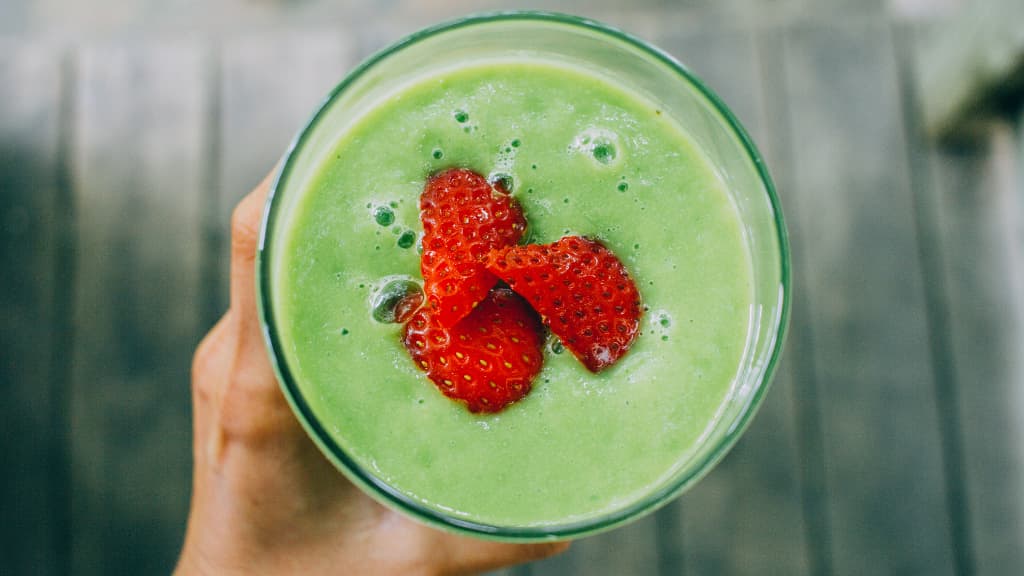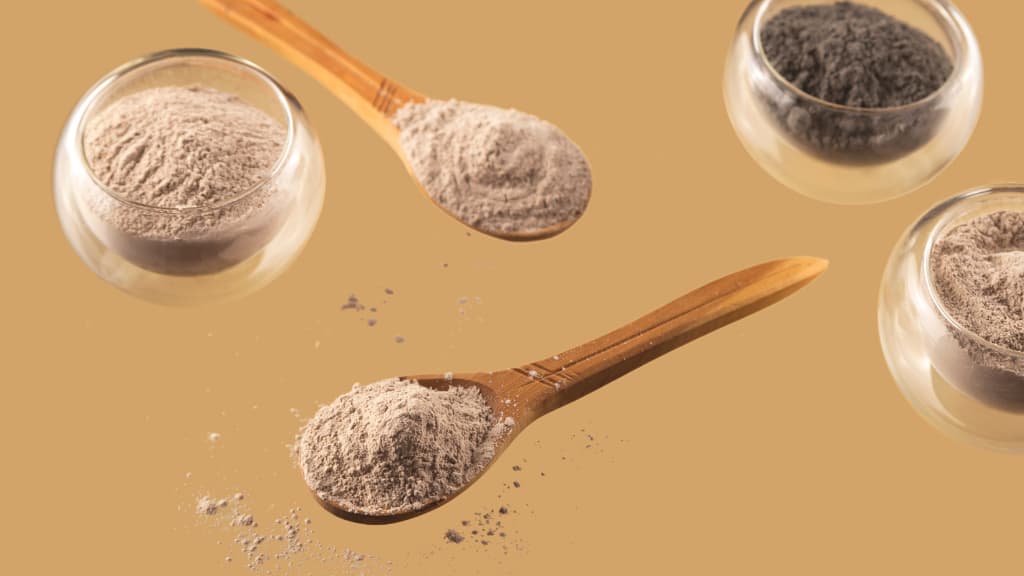Collagen vs Whey Protein – Which is Better?
“Collagen vs Whey Protein – Which is Better?” was written by Karina Tolentino, RD & edited/reviewed by Aly Bouzek, MS, RDN. Karina is a dietitian and blogger at Dietitian Karina.
Getting enough protein can be challenging for older adults. Many factors can impact how much protein we eat as we age, such as changes to our teeth and the ability to swallow, or changes in food preferences or taste aversions.
A common way to increase your protein is by adding protein powder to your diet.
Follow along as we dive more into the topic of collagen vs whey protein. This article will discuss the differences and benefits to help you decide which protein is best for you.
What is Collagen?
Collagen is a protein that makes connective tissue throughout your body.
It’s found in bone, cartilage, tendons, and muscles and gives these tissues strength and flexibility as you move. (1)
Where Do We Get Collagen?
Your body makes collagen naturally. However, as you age, you begin to produce less collagen. (1) Not to worry though! Did you know that you can get collagen from the foods you eat or from collagen supplements? Keep reading to learn more.
Foods That Have Collagen
Before we talk about foods that have collagen, we first need to understand that eating foods high in collagen does not directly lead to you having more collagen (or having more collagen where you want it in your body).
Your body actually takes the collagen from the foods you eat and breaks it down into amino acids (protein building blocks). These amino acids are then transported through your body to where protein is needed.
So, eating foods high in collagen does not increase the collagen in your body because it’s not absorbed and used in its complete form. (2)
How to Naturally Boost Collagen
You can support collagen production naturally by eating a well-balanced protein-rich diet to get the vitamins and minerals your body needs to synthesize collagen.
You can help support your body’s collagen production naturally by eating foods containing zinc, copper, vitamin C, and amino acids (specifically glycine and proline). (2)
These foods include:
- Asparagus
- Beans
- Bell peppers
- Broccoli
- Dark chocolate
- Egg whites
- Fish
- Granola
- Green leafy vegetables
- Lobster
- Milk
- Mushrooms
- Nuts and seeds
- Oranges
- Oysters
- Pork and poultry
- Potatoes
- Red meat
- Strawberries
- Tofu
- Whole grains
Note: despite recommendations from popular diets encouraging gelatin or bone broth, research has not shown that consuming these foods increases collagen in the body.
Additionally, the activities you participate in and environmental exposures like smoking, exercise, and sun exposure can decrease the fiber-like structure of collagen. This leads to strength and elasticity loss in your skin, joints, and muscles.
Reducing the amount of stress on your body and living a healthy lifestyle can help preserve collagen production in your body.
Why is Collagen Important for the Elderly?
Collagen has increased in popularity due to claims to improve skin, hair, and nails.
Most studies on collagen have been done on joint and skin health, but there is still a need for more research to find out if taking collagen as a supplement provides benefits.
As of today, studies have favorably shown to improve mobility and decrease joint pain in people with osteoarthritis who have taken collagen as a supplement. (2)
What is Whey Protein?
Whey protein comes from cow’s milk and is found in dairy products. It’s a by-product in the process of making cheese and is popularly sold as a powder. (3)
Whey protein powder is primarily recommended because it contains all essential amino acids your body needs to function and stay healthy. Though, it is not recommended for people who can’t digest dairy due to its lactose content.
How to Add Whey Protein to Your Diet
As a powder, whey protein comes unflavored or flavored. Flavors include anything from chocolate, vanilla, strawberry, to pumpkin spice, chai, cookies and cream, and more.
Whey protein powder is easy to incorporate into your meals. It can be easily added to foods and drinks such as:

- Apple sauce
- Ice cream
- Mashed potatoes
- Milk
- Oatmeal
- Pudding
- Shakes
- Smoothies
- Soup
- Yogurt
- Water
Why is Whey Protein Important for the Elderly?
Protein is an essential macronutrient that helps build and repair our muscles, boosts our immunity, and gives us energy every day.
Consuming whey protein powder can be helpful for the elderly who have difficulty getting enough protein to meet their daily needs.
Benefits for the elderly consuming whey protein include:
- Weight gain
- Wound healing
- Helping meet increased needs for a medical condition
- Prevention of malnutrition
- Faster recovery
Which is Better: Collagen vs Whey Protein
One protein is not better than the other. Collagen and whey protein provide different benefits that you should consider based on your health and nutrition goals.

Collagen
Foods high in collagen are not all complete proteins, so you would still need to eat other protein sources to get all the nutrients your body needs.
For example, eating some fruit (such as oranges and strawberries) will not help you meet your protein needs. Instead, try pairing the fruit with some eggs or dairy to boost your protein!
Also, consider that collagen protein supplements have mainly shown improved joint pain and skin integrity. (2)
Whey Protein
In contrast, whey protein powder is a complete protein. This means that it has all 9 of the essential amino acids that we must get from our food (our body can’t make them). It’s also high in calcium and has vitamins (B vitamins) and minerals.
With whey protein, you wouldn’t need to eat additional protein sources to get all the nutrients your body needs.
This may be helpful if you get full quickly, or are wanting to decrease the volume of food you eat while still making sure you’re getting enough protein and calories.
Whey protein has many health benefits and is a good source of protein for those who have difficulty meeting their protein needs.
Collagen vs Whey Protein: Can You Use Them Together?
It is OK to consume both types of protein at the same time.
You might consider if consuming two protein powders long-term is realistic and cost efficient for you.
Aim to prioritize food sources of protein first and live a healthy lifestyle to get these proteins naturally.
Conclusion: Collagen vs Whey Protein – Which is Better?
Hopefully you have gained some clarity on the differences between collagen vs. whey protein to help you decide if you should add one to your diet.
Collagen is an important protein that gives structure and strength to our tissues but needs more research to understand the long-term benefits. Collagen may be an option to try for older adults who suffer from joint pain.
Ultimately eating a well-balanced diet, getting enough sleep, and limiting stress will support you in producing enough collagen protein and eating enough essential proteins that your body needs.
Whey protein is a complete protein backed by research that can help older adults improve their nutritional status and meet their daily protein needs.
Be sure to talk with your doctor or a registered dietitian before changing your diet and if you have any additional questions.
References:
- Collagen. The Nutrition Source. (2022, March 2). Retrieved September 30, 2022, from https://www.hsph.harvard.edu/nutritionsource/collagen/.
- Collagen: What it is, types, function & benefits. Cleveland Clinic. (n.d.). Retrieved September 30, 2022, from https://my.clevelandclinic.org/health/articles/23089-collagen.
- Workout supplements. The Nutrition Source. (2022, April 27). Retrieved September 30, 2022, from https://www.hsph.harvard.edu/nutritionsource/workout-supplements/.
